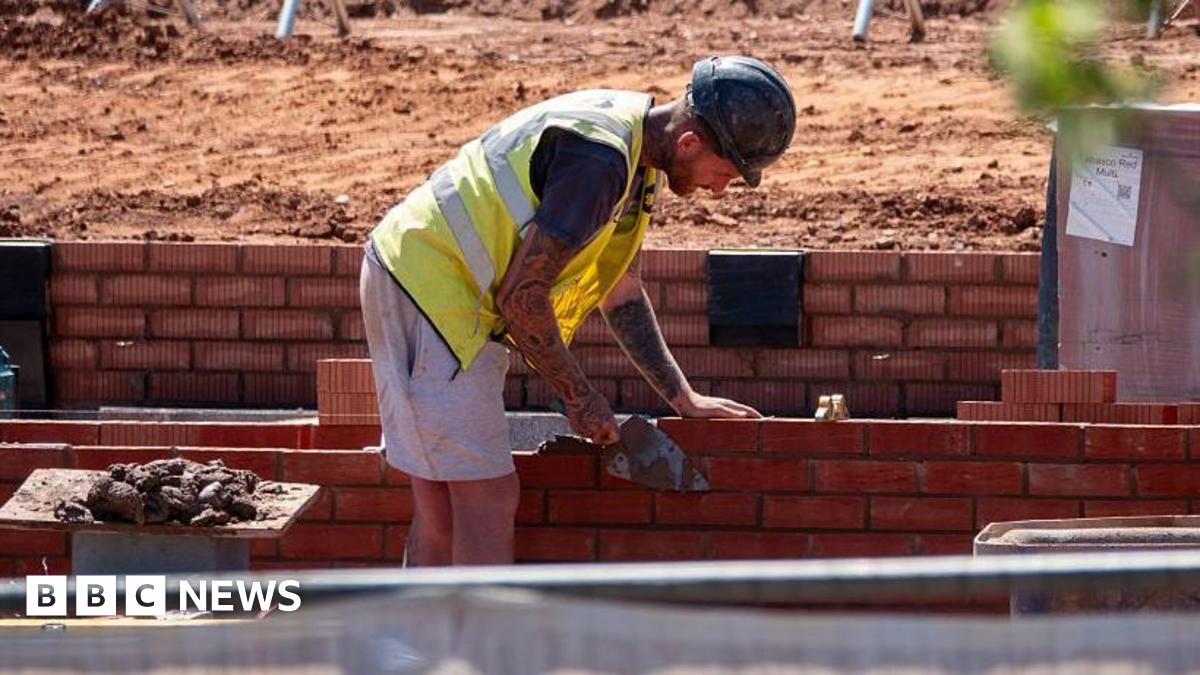UK cement production drops to lowest levels since 1950s

The Labour government has pledged to build 1.5 million new homes in England by 2029 as part of efforts to solve the housing crisis and boost economic growth.
Under a separate investment strategy unveiled in June, Chancellor Rachel Reeves pledged to pour £725bn over the next decade into maintaining existing infrastructure and building new projects.
But the UK made just 7.3 million tonnes of cement in 2024, according to the MPA, which represents manufacturers of products such as asphalt and cement.
The trade body said that was about half of that produced in 1990 and similar to production levels seen when rationing was still in place following the World War Two.
MPA executive director Dr Diana Casey said the decline threatened to derail the government's ambitions for housing, infrastructure and clean energy projects.
"[You] can't build houses, bridges or railways without us," she told the BBC.
"So the fact production has declined so much at a level since 1950 is worrying," she continued, adding that it "could impact government targets like homes and hospitals and power plants that are due to be built".
The MPA said a project such as the Sizewell C nuclear power plant could need up to 750,000 tonnes of cement and a new hospital would require nearly 8,000 tonnes.
A traditional four-bedroom home needs between three and five tonnes.
The MPA said production had fallen due to rising costs and changes to carbon taxation, which reduced market competitiveness and was a major concern to the sector.
It also highlighted the growth of cheaper cement import sales nearly tripling over the past 16 years, from 12% in 2008 to 32% in 2024.